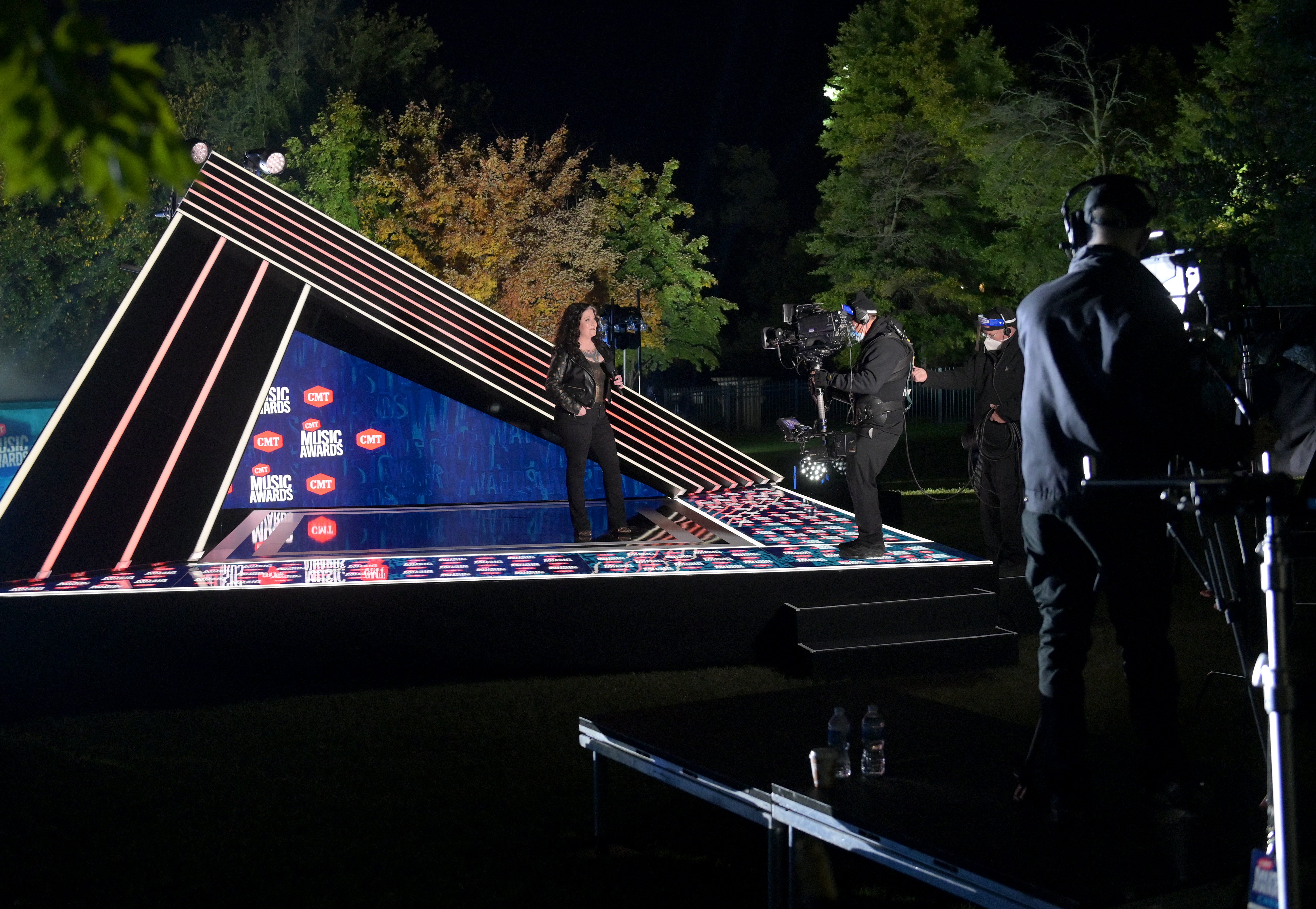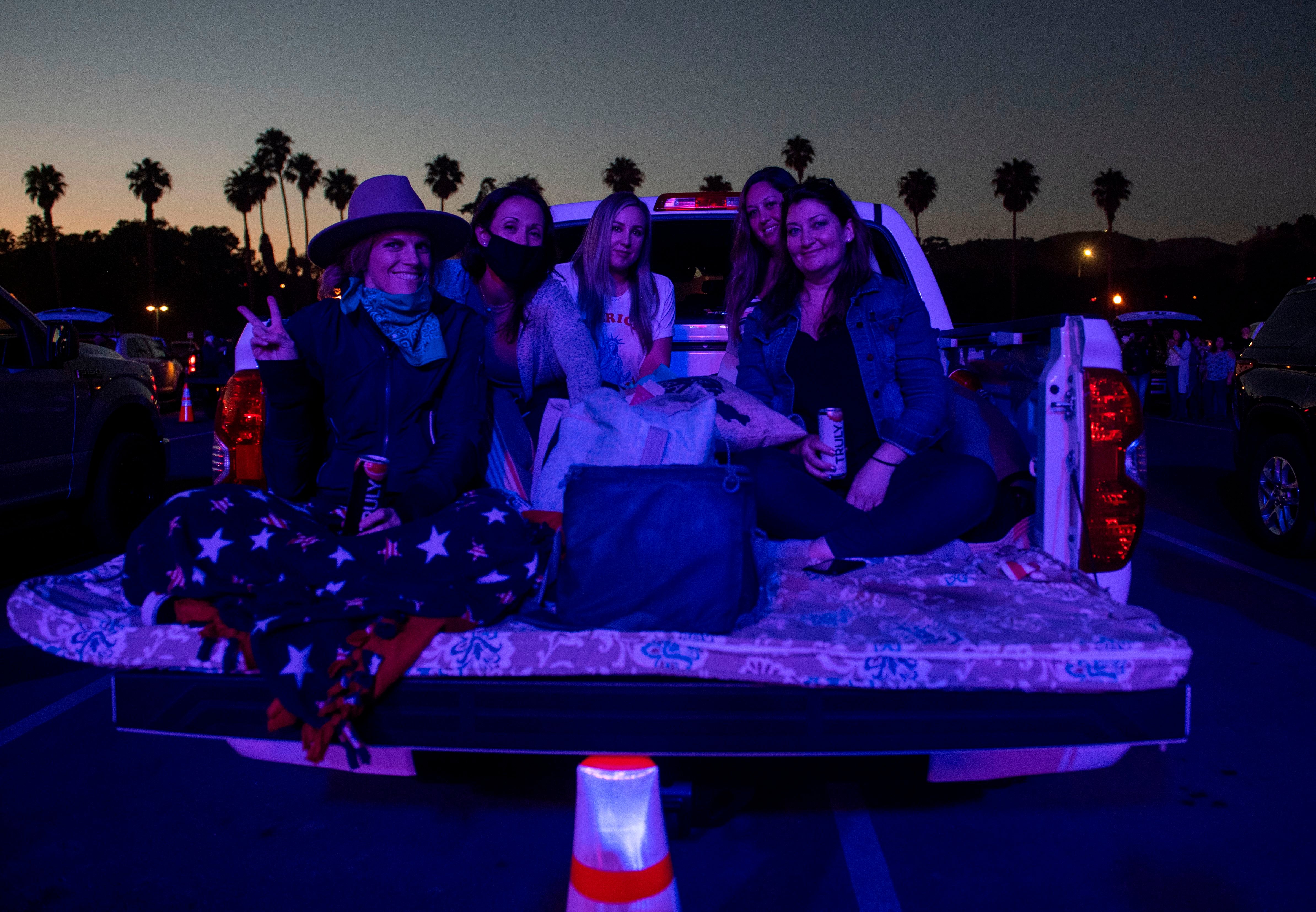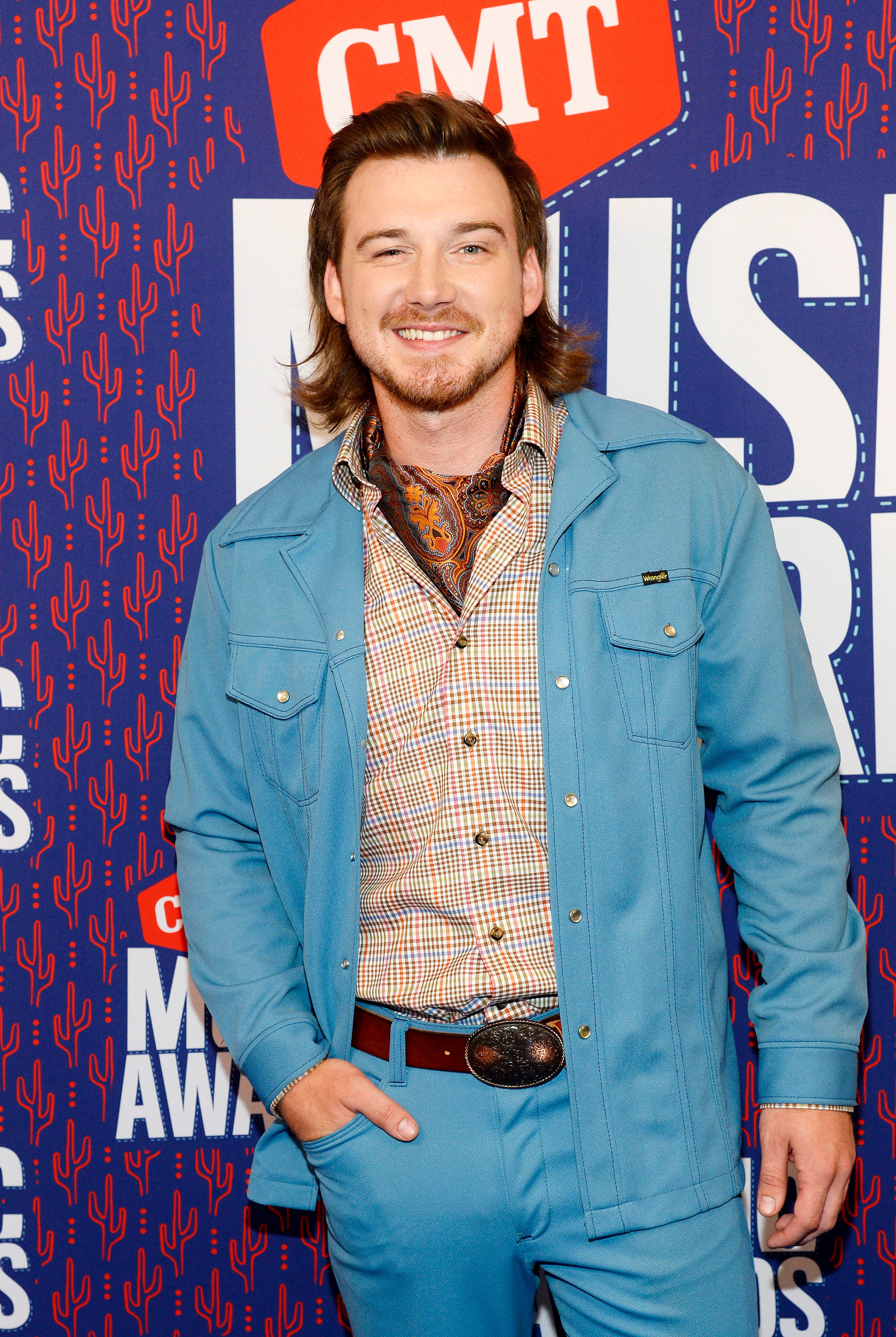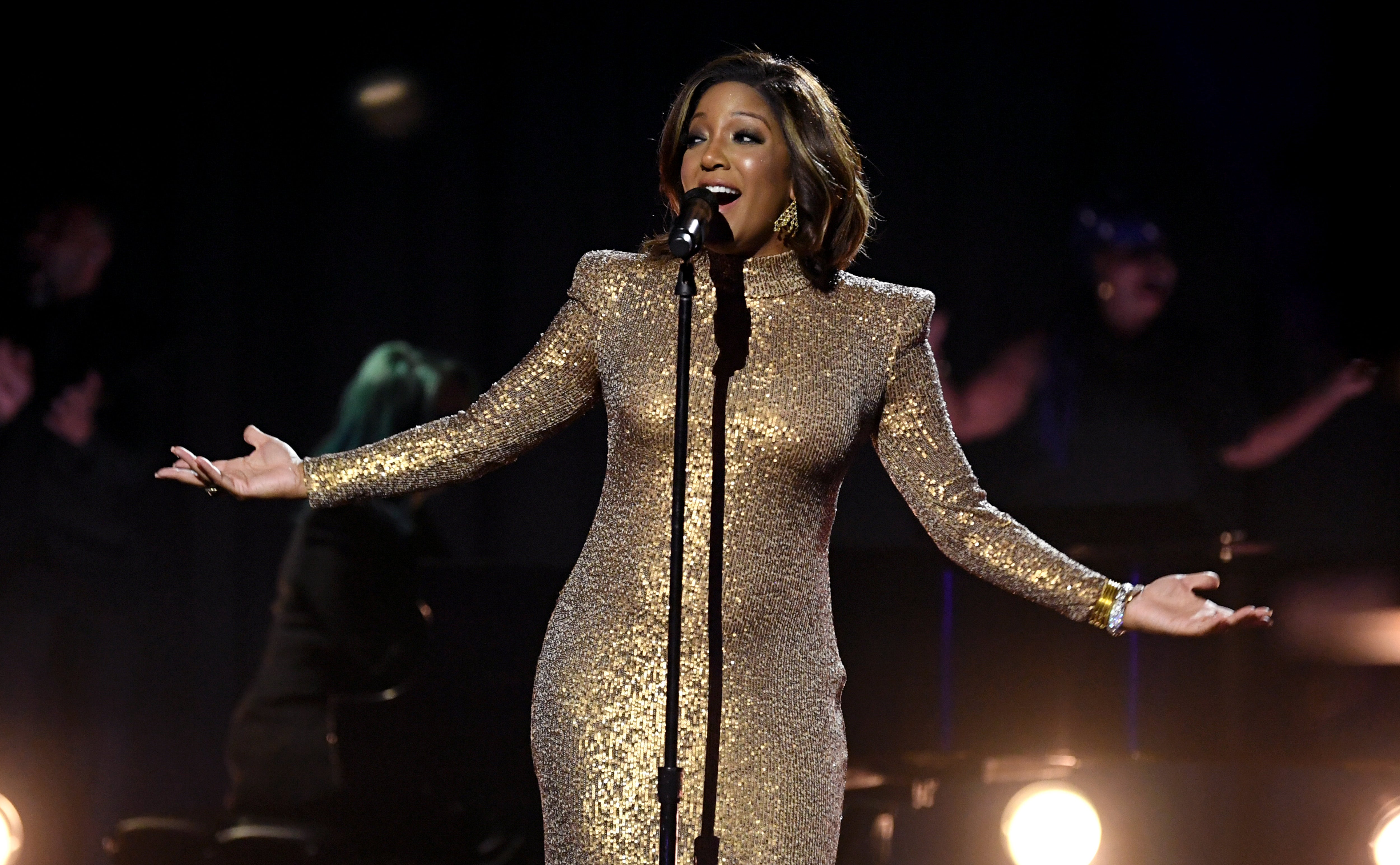Country Music Television Awards civil war over guns and cancel culture explodes hours before the show
The CMT Awards are scheduled for Wednesday evening

Your support helps us to tell the story
From reproductive rights to climate change to Big Tech, The Independent is on the ground when the story is developing. Whether it's investigating the financials of Elon Musk's pro-Trump PAC or producing our latest documentary, 'The A Word', which shines a light on the American women fighting for reproductive rights, we know how important it is to parse out the facts from the messaging.
At such a critical moment in US history, we need reporters on the ground. Your donation allows us to keep sending journalists to speak to both sides of the story.
The Independent is trusted by Americans across the entire political spectrum. And unlike many other quality news outlets, we choose not to lock Americans out of our reporting and analysis with paywalls. We believe quality journalism should be available to everyone, paid for by those who can afford it.
Your support makes all the difference.A pro-gun control tweet from Country Music Television (CMT) has backfired on the organisation as the network is set to host the one of the biggest awards show for the genre: the CMT Music Awards.
A furious reaction broke out among country music fans last week after the Country Music Television Twitter account announced its support to end gun violence and encouraged everyone to wear orange in honour of the movement.
“We’re (virtually) wearing orange today in support National Gun Violence Awareness Day and to call attention to the more than 100 lives that are lost every day to gun violence,” the organisation tweeted.
The tweet included a picture with the statistic that “every day more than 100 Americans are killed with guns” – a fact that came from a CDC report analysing gun violence in the US from 2015 to 2019.
Responses to the tweet showed a majority of followers reacting negatively to CMT’s support of National Gun Violence Awareness Day, including some threatening to boycott the awards show, scheduled for Wednesday night, amid the organisation’s support.
“Sorry to have run across this on the day of the show. Looks like I’ve seen my last CMT Awards show as well as watching CMT. I’ll continue to follow country music (especially the songwriters); but I’ll listen to & watch country music elsewhere, mostly live in Nashville, it appears,” one Twitter user wrote.
Another person claimed that the tweet from CMT lost them a majority of their viewers.
“You just lost 75% of your viewers. I for one, will not ever watch any station who champions any campaign against the 2nd Amendment, which is what CMT just did. You’d think they would know their audiance [sic], but you put woke idiots in charge, and you get stupidity,” one Twitter user wrote.
A Los Angeles Times survey of the first 100 direct respondents to the tweet found that 95 per cent of them were against what CMT was promoting and accused the network of going against its core base.
“Great job alienating your audience,” a commentator wrote.
The Independent has contacted CMT for a comment.
Whether the tweet would impact the CMT Awards, which rely on fan votes to decide each categories’ winner, remained unknown.
Awards ceremonies within the last year have pulled in lower viewership amid the coronavirus pandemic and their transition to a more virtual experience. So if low viewer numbers are recorded for the upcoming CMT Awards, it doesn’t necessarily mean the controversial tweet from the organisation led to a boycott of the show.
But it has created controversy for the network at a time when cancel control and boycotts have taken root within the nation as a way for Americans to express displeasure towards a person or organisation.

Country music conjures images of rural southern communities and conservative white Christians, two demographics with high support of the Second Amendment and gun ownership. CMT pushed a red hot button for many of the genre’s most ardent fans.
Geoff Mann, a professor of geography at Simon Fraser University, analysed country music and its relationship with its audience in a 2008 essay entitled Why Does Country Music Sound White?
In the paper, Mr Mann described the 1950s and 1960s as a key turning point for the genre when it started to promote a certain vision of “whiteness” in society. The music evolved into its more current form with a focus on nostalgia by artists and harkening back to “simpler” times in the country.
“It pretty quickly became a situation in which the music didn’t describe how white people felt, but instead described how whiteness felt,” Mr Mann wrote. “And, in that sense, it is, or at least often is, a big cultural-reproduction machine, not only narrating the ongoing siege of simple, innocent white folks — this is why nostalgia is so absolutely central to the whole genre — but also performing a resistance to this siege in the experience of a supposedly simple, unrepentant white ‘normal’ that’s basically a big ‘f*** you’ to anyone who celebrates the forces behind that siege.”
Given this explanation, CMT viewers could see the gun tweet as another “siege” of something they attribute to their culture: the ability to proudly own a gun.
Country music has had to grapple with race and other cultural issues within its genre over the years.

Artist Morgan Wallen, a white singer, experienced fierce backlash after a video showed the country music star using the N-word in a video in February.
The artist apologised for his actions one week after the release of the video, but the country music industry did not initially respond kindly to the situation. Billboard Music Awards banned Mr Wallen from attending, radio stations stopped playing his music, he was temporarily suspended from his label, and dismissed from his talent agency.
Then just one day ahead of the CMT Awards, fans of Mr Wallen, who claim he’s been unfairly cancelled, purchased multiple billboards across Nashville in support of the country music singer.
“The fans are speaking. Enough is Enough,” seven billboards scattered around Nashville read. “Music industry we want to be heard.”
These billboards also surfaced in Los Angeles ahead of the Billboard Music Awards and the Academy of Country Music Awards after Mr Wallen was shut out amid the controversy.
At first, the controversy looked like maybe country music was having a reckoning with some of the issues related to race that are prevalent within the genre. But Mr Wallen has not lost his footing within the industry.
The Country Music Awards (CMA) announced Mr Wallen could still be nominated for awards this year, but he would not be allowed in specific categories. Mr Wallen also made a return to his label and radio airwaves in the months following the backlash.
These latest incidents – CMT’s gun tweet backlash and Mr Wallen’s return following controversy – show that fans could be attempting to keep the country music community they’ve long known, not one willing to embrace cultural shifts.
Some country music stars could be influential, though, in how the genre changes in the years to come.
The Dixie Chicks and Lady Antebellum have both made attempts at being more inclusive to its audience by altering their names to The Chicks and Lady A, respectively. (But already The Chicks were ostracised from country music for years after speaking against President George W Bush and the Iraq War in 2003).

Country singer Mickey Guyton, who made history by becoming the first solo Black woman to receive a Grammy nomination in a country category, hosted the ACM Awards this year – which had a record four Black artists nominated. She was the first Black host for the awards show since 1984.
After Mr Wallen apologised for using the N-word, citing his drunkenness as one of the reasons for using the word, Ms Guyton responded on Twitter.
“The hate runs deep. Promises to do better don’t mean sh*t,” she wrote.
Instantly, Ms Guyton was accosted with hate from the country singer’s fans.
“What was most appalling to me was not even him saying the word — that was wrong, it sickened me, it grossed me out — but the way some of the fans came after me for calling out racism. I’ve never been on the receiving end of that much hate before,” Ms Guyton told The New Yorker.
Ms Guyton, herself, has been told country music would cancel her and “you’ll be Dixie Chick-ed” for pushing the envelope on what and who the genre could represent.
But she expressed optimism to the publication that a cultural shift was starting in country music.
“I know that the town is starting to embrace other Black female artists,” she said. “That’s so important. It’s not enough for just one to make it here and there — it needs to be a sea of Black women, a sea of Latina women, a sea of LGBTQ artists. If we don’t see that, then it’s just gonna be the same white guy in a pickup truck with a ball cap, maybe some sneakers.”
Join our commenting forum
Join thought-provoking conversations, follow other Independent readers and see their replies
0Comments